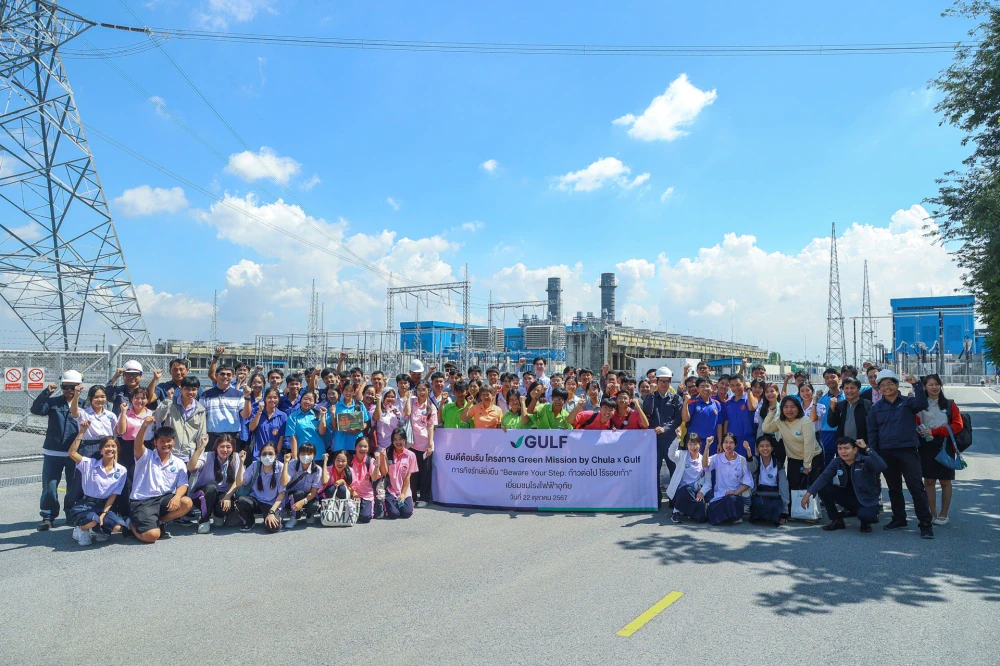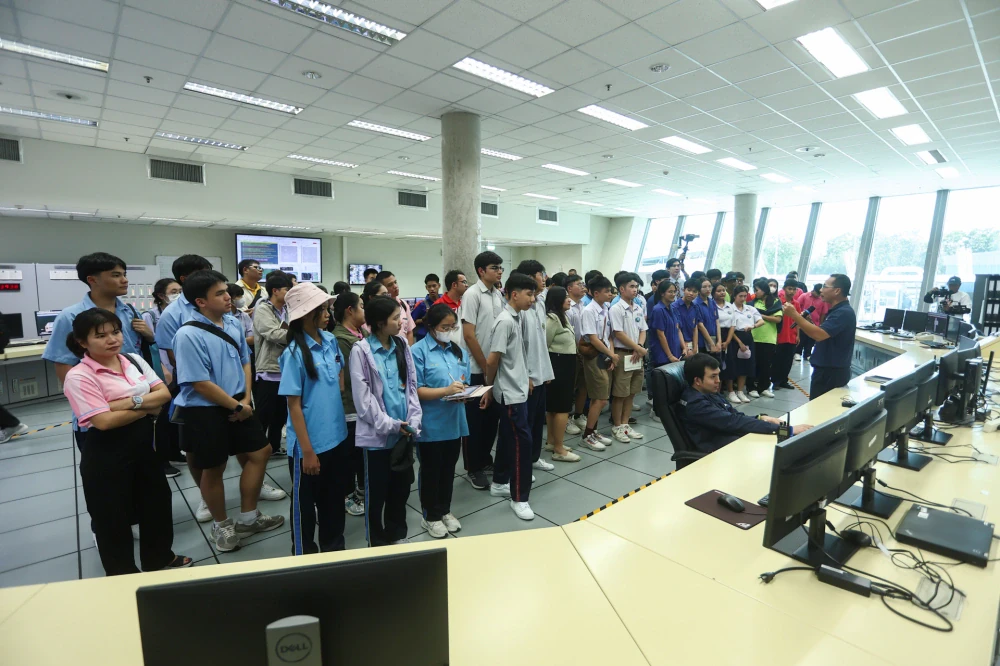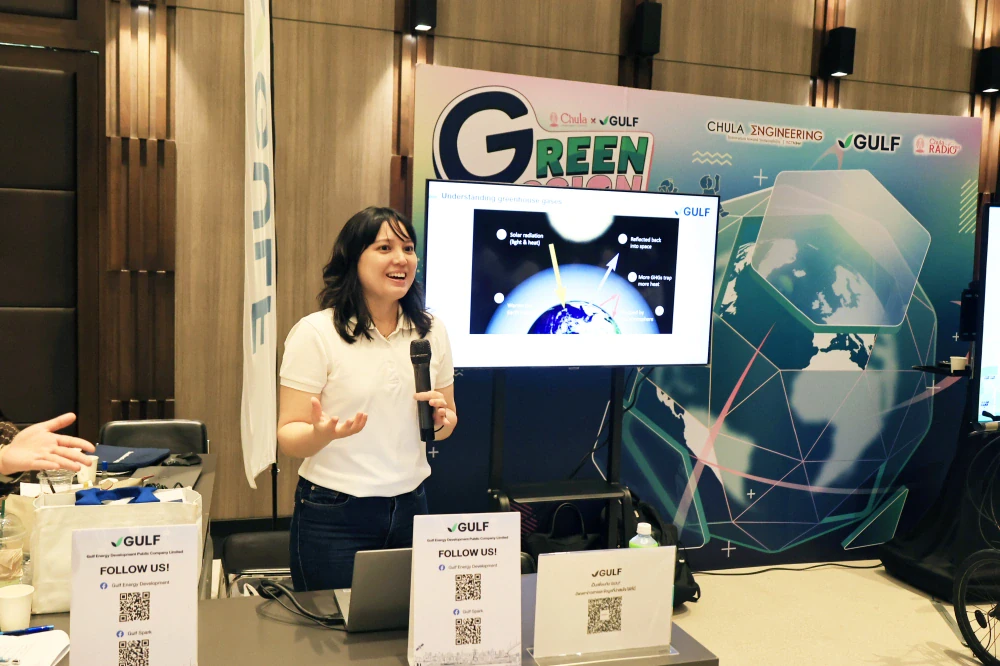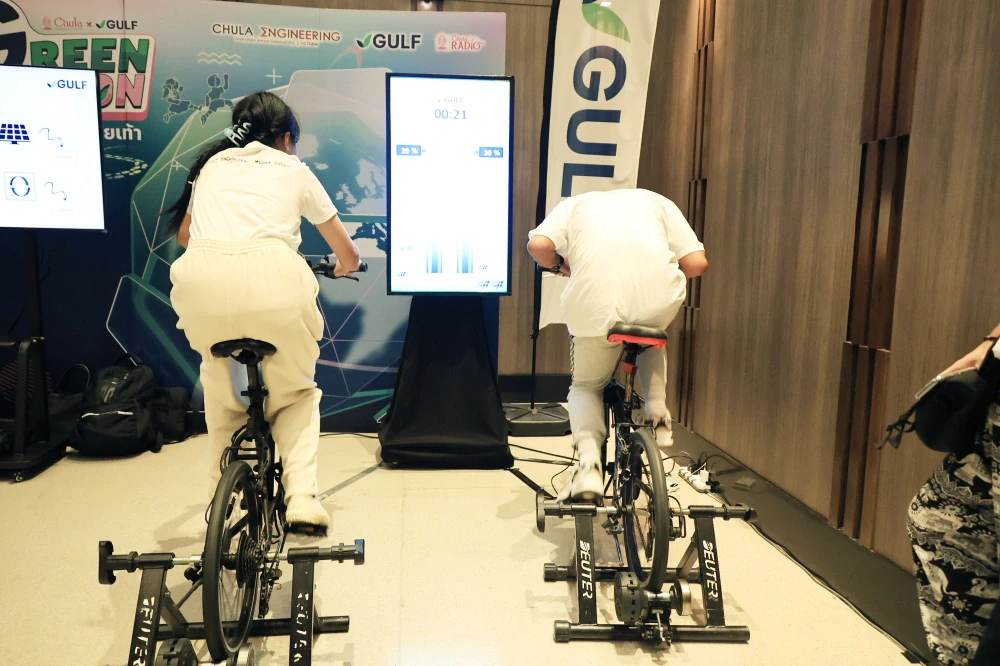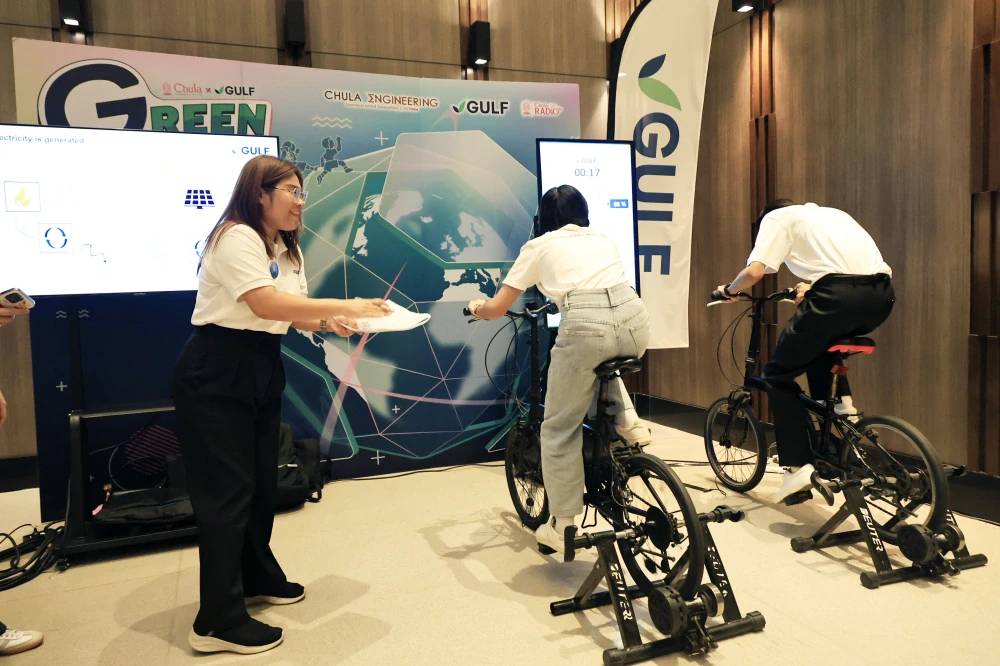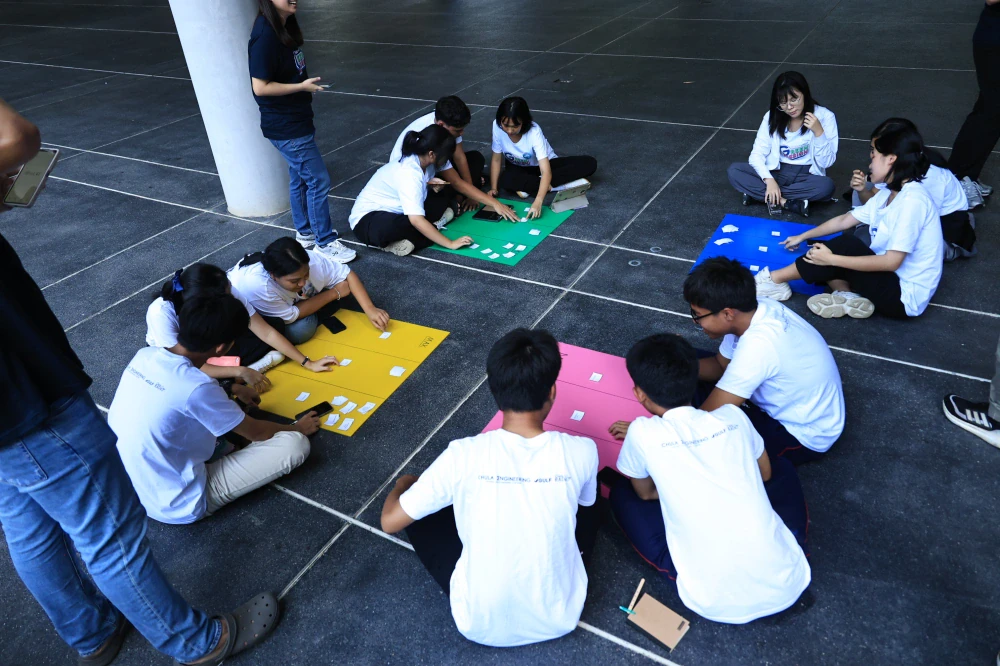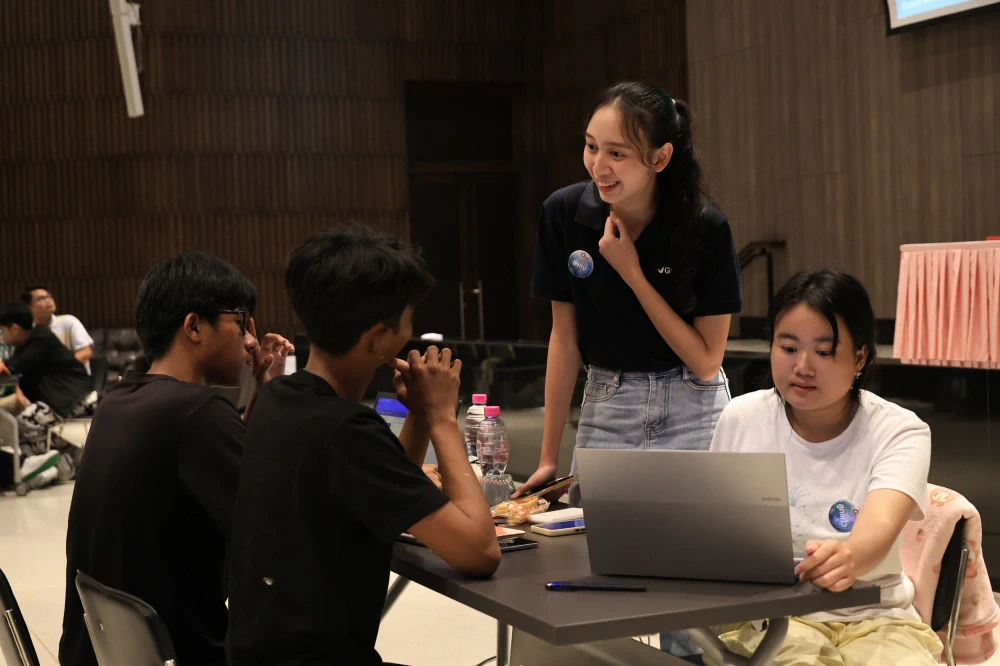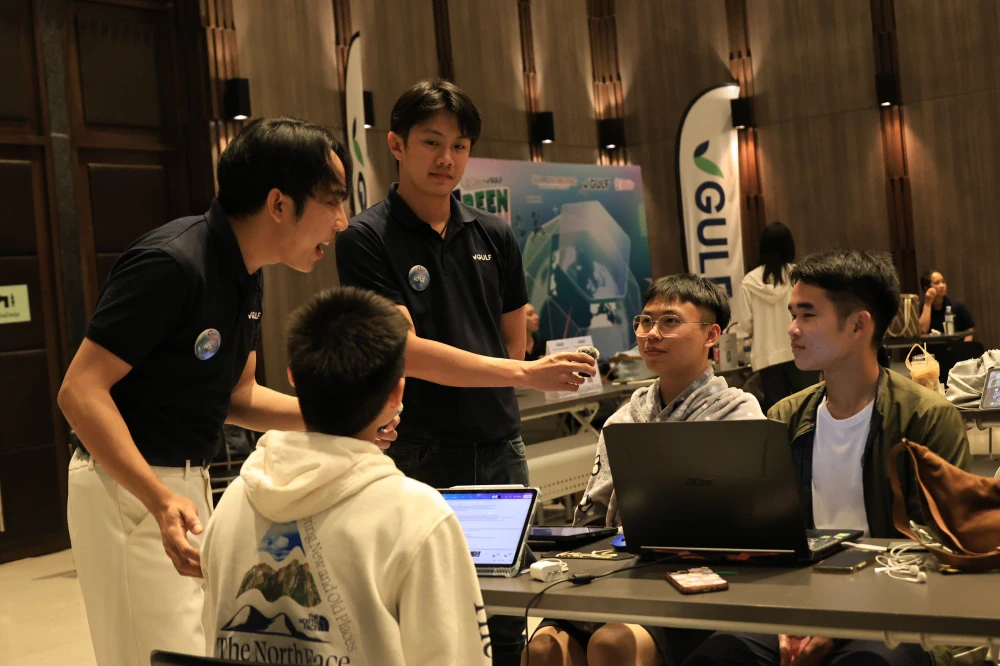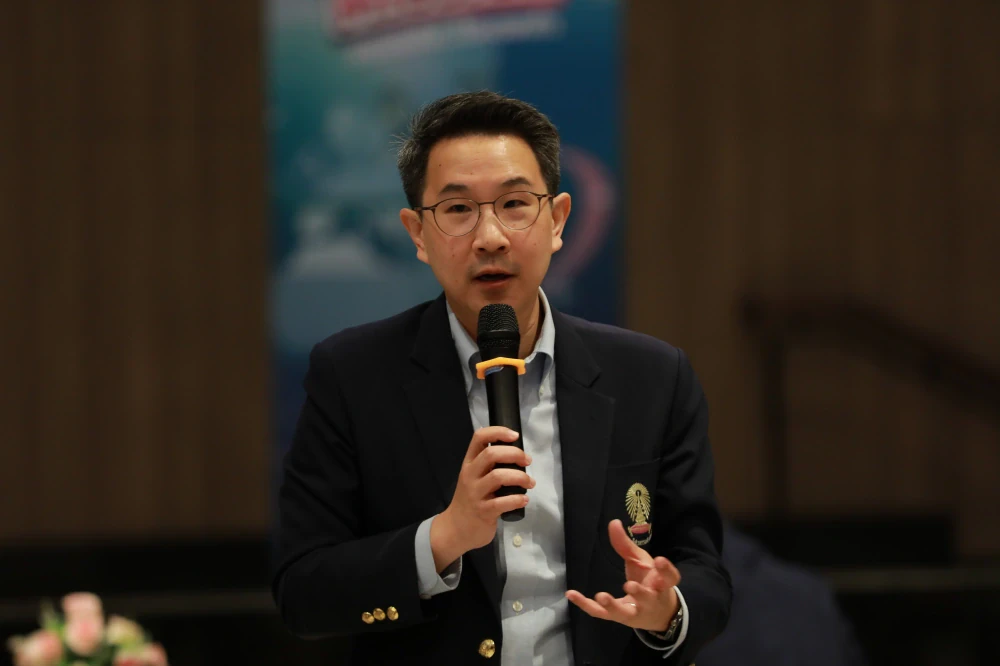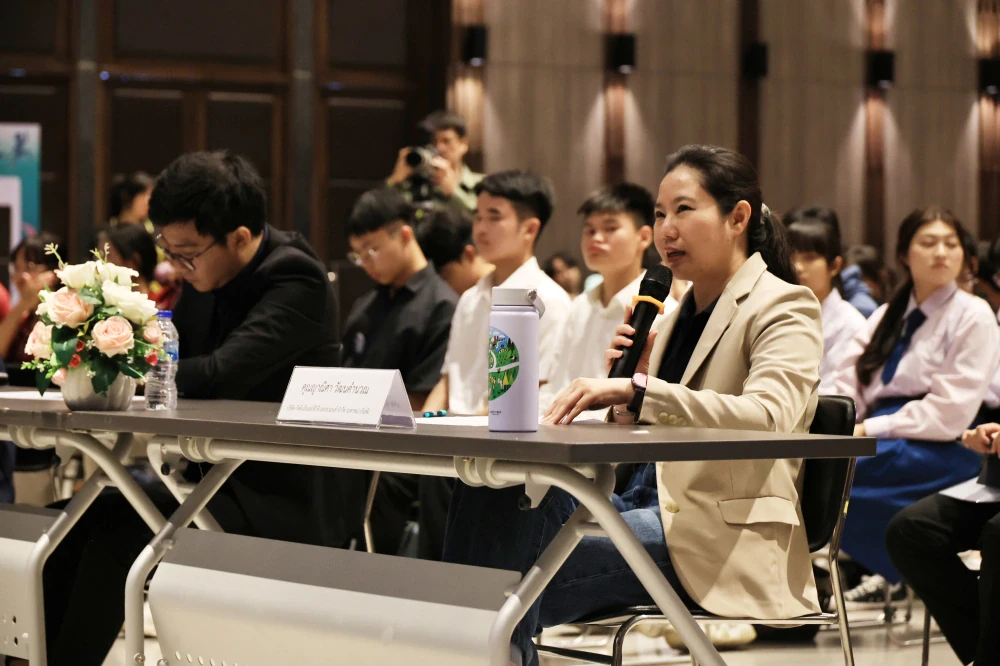Green Mission by Chula x GULF Crowns Hat Yai Wittayalai 2 School as Champion
Last Chance to Vote! Make Your Pick for the Popular Vote by GULF
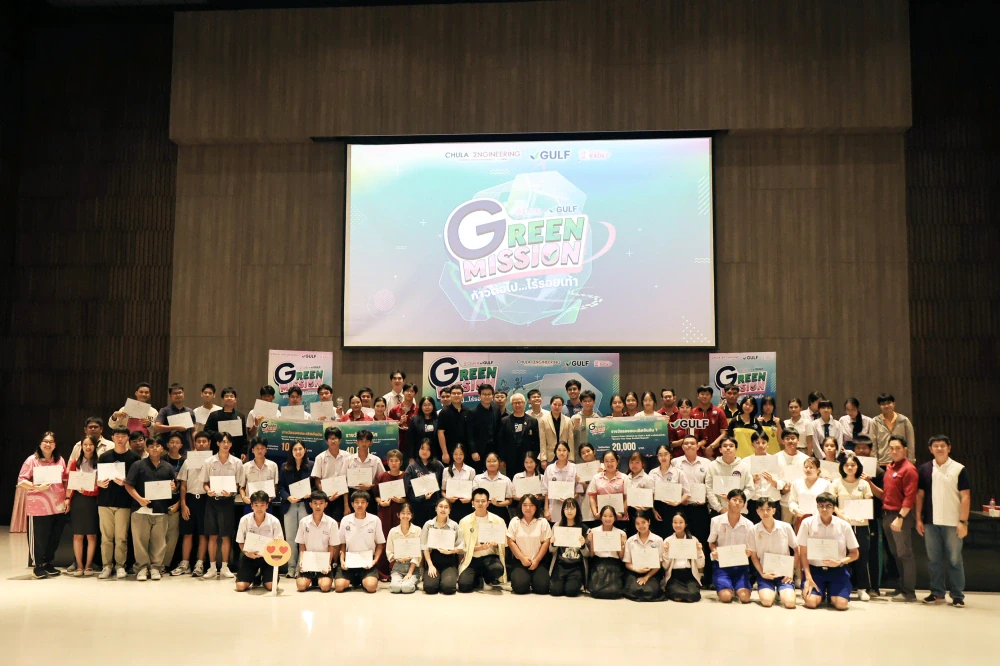
The Green Mission by Chula x GULF, a collaborative initiative between the Faculty of Engineering, Chulalongkorn University, in partnership with Gulf Energy Development Public Company Limited (GULF) and Chulalongkorn University Radio Station (Chula Radio Station) under the management of the Office of Academic Resources, Chulalongkorn University, has concluded successfully. This sustainable creative project encouraged students to develop innovative solutions for pressing environmental issues, centered around the theme “Beware Your Step, Next Step Without Footprints.” From over 670 nationwide applications, 20 teams were selected to participate in an intensive bootcamp and hackathon at Chulalongkorn University’s Center of Learning Network for the Region in Saraburi Province. After rigorous competition, 8 teams advanced to the final pitching round. Ultimately, Hat Yai Wittayalai 2 School from Songkhla Province emerged as the grand winner. Their innovative project, “Swamp algae for high-protein and low-carbon shrimp feed,” impressed the judges with its potential to promote sustainable community agriculture. The winning team received a trophy and a 40,000-baht scholarship.
Throughout the project, students immersed themselves in a variety of engaging activities to broaden their knowledge and skills. They visited Gulf Group’s Uthai Power Plant to gain firsthand insights into power generation processes and the energy industry. At Chulalongkorn University’s Center of Learning Network for the Region, they participated in an intensive bootcamp led by experts from the university’s Faculty of Engineering and GULF Asa volunteers, who offered valuable guidance and took care of the students throughout the event. The program kicked off with a brainstorming session on carbon footprint and climate change, followed by a critical thinking exercise through environmental debates. Participants also engaged in five environmental learning bases and a ‘Magic of Mindset’ session to develop life and study planning skills. These experiences fostered collaboration and professional presentation abilities. The culmination of the project was an intense hackathon centered around the theme ‘Beware Your Step, Step to the Future: Developing Communities to Sustainably Improve the Quality of Life and Be Carbon Neutral.’ After rigorous competition, 8 teams were selected to present their creative solutions to a panel of judges. The judging criteria for the final presentations were as academic accuracy (25%), feasibility of application (30%), outstanding development approach (30%) and presentation interest (15%)
The winner is the low-carbon shrimp feed project from Hatyai Wittayalai 2 School, Songkhla Province, which aims to push the Songkhla shrimp industry towards sustainability by using swamp algae, a freshwater plant renowned for its high protein content and carbon dioxide absorption capabilities, as a viable alternative to fishmeal. Mahidol Wittayanusorn School team in Nakhon Pathom Province won the first runner-up award with their project on alternate wetting and drying rice farming in Ban Tha Maprang Community, Nakhon Ratchasima, which is in line with the concept of ‘Local Low Carbon’, a rice farming method that reduces water usage, methane emissions, and chemical use. The second runner-up award goes to Mahavajiravudh School in Songkhla Province with their Kao Seng Model project, which aims to develop the Kao Seng Community, a prominent fishing community and tourist destination in Songkhla Province, focusing on solving environmental problems and promoting sustainable community economic growth.
Beyond the top three winners, five other teams showcased exceptional creativity and environmental consciousness. Khanarat Bamrung School from Yala Province developed a durian peel processing application to minimize waste and educate the community. Princess Chulabhorn Science High School from Mukdahan Province inspired their community to build a sustainable factory for producing Phon Yang Kham beef cattle feed. Samsenwittayalai School from Bangkok implemented an ‘Energy Manager Model’' to transform their school into a ‘Green School’. St. Joseph Bangna School from Samut Prakan Province addressed the environmental impact of animal skin tanning by introducing a water-free, CO2-intensive tanning method. Finally, Amphawan Wittayalai School from Samut Songkhram Province developed ‘Cocochar,’ a product made from processed coconut husks that reduces CO2 emissions and produces carbon-absorbing charcoal. These innovative projects highlight the potential of Thai students to contribute to a more sustainable future.
While the Green Mission by Chula x GULF competition has concluded, the excitement continues! GULF invites you to participate in the Popular Vote by liking, sharing, and commenting on your favorite team’s post on Gulf Spark Facebook Page. The team that garners the most engagement will receive a 10,000-baht scholarship. Voting is open now and will close on November 8th at 4:00 PM.
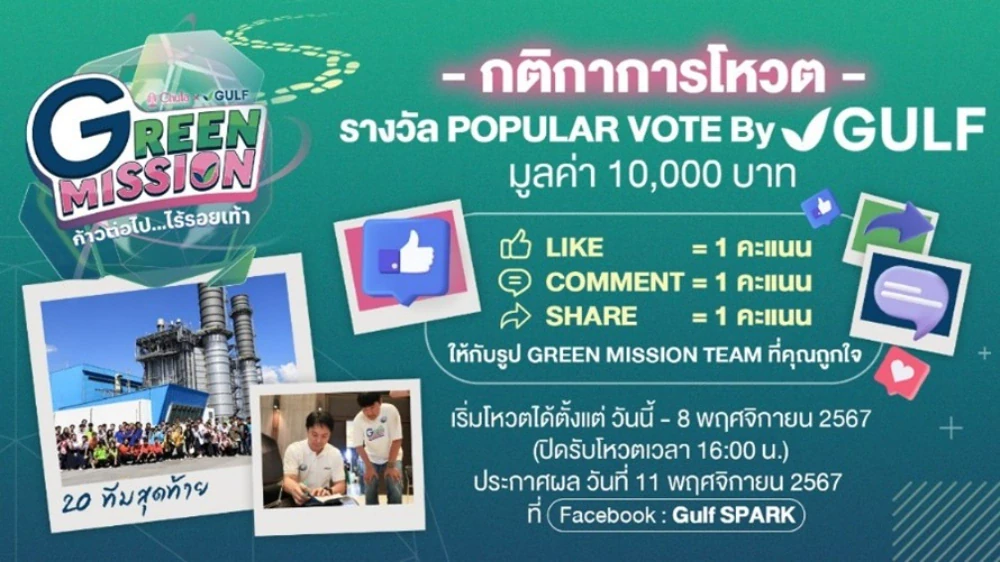
For activity photos, please follow GULF Spark Facebook fan page at https://www.facebook.com/GULFSPARK.TH/ and GULF’s Tiktok channel at https://www.tiktok.com/@GULFspark
Additional information about winning teams’ projects:
Winning Team: Hatyai Wittayalai 2 School, Songkhla Province
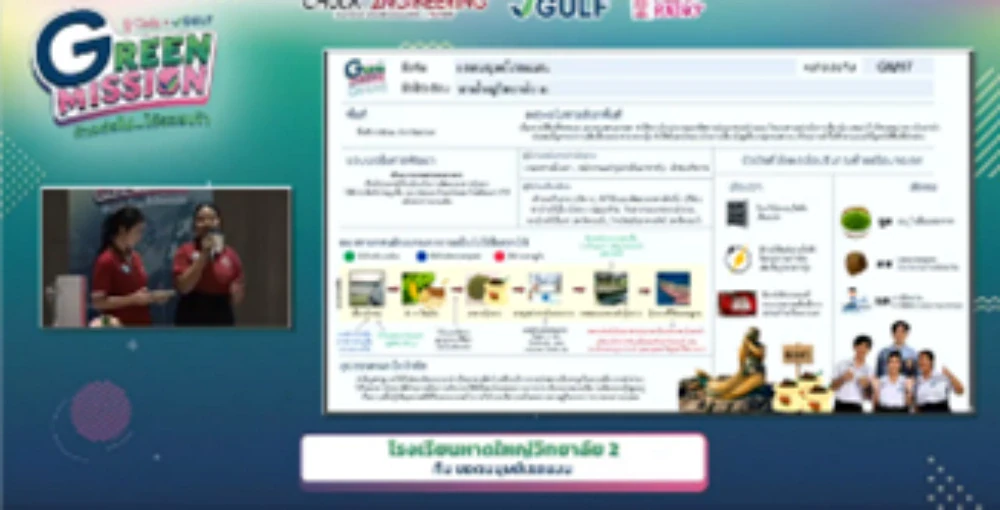
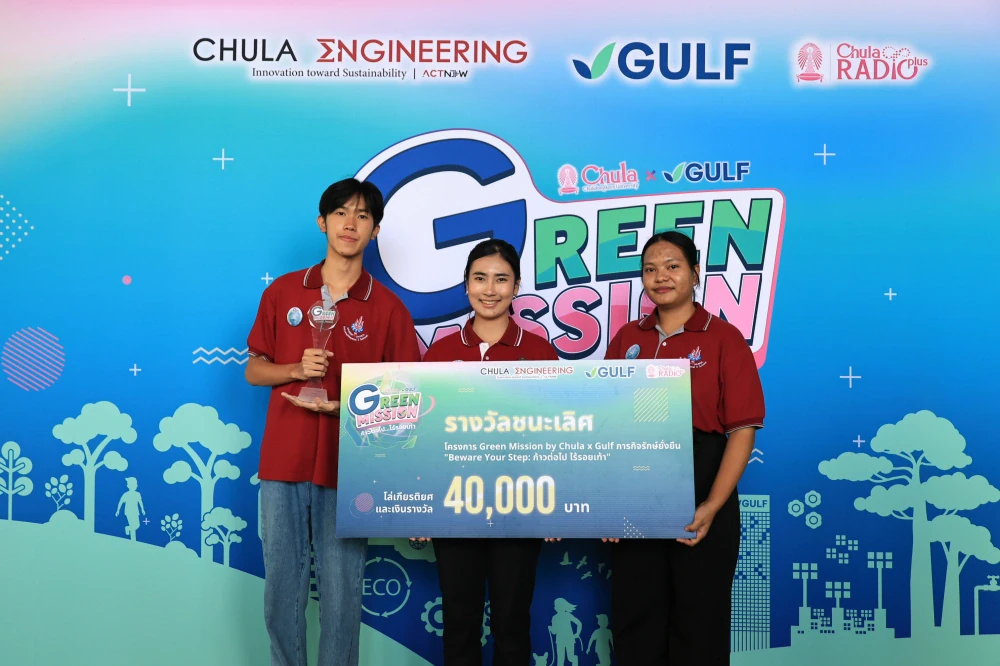
Project: Swamp algae for high-protein and low-carbon shrimp feed
The team’s goal is to revolutionize the Songkhla shrimp industry by introducing a sustainable and cost-effective shrimp feed solution. The Songkhla shrimp industry has been grappling with a six-month-long low-price crisis, primarily driven by rising production costs, particularly the escalating price of fishmeal. Recognizing this challenge, the student team proposed the use of swamp algae, a freshwater plant renowned for its high protein content and carbon dioxide absorption capabilities, as a viable alternative to fishmeal.
Swamp algae offers numerous advantages: it is a readily available, fast-growing plant that can significantly reduce greenhouse gas emissions, making shrimp production more environmentally friendly. Moreover, it is a high-fiber, high-protein ingredient that can help lower production costs. The team conducted a breakeven analysis to demonstrate the project's financial viability, making it an attractive proposition for investors.
1st Runner-up: Mahidol Wittayanusorn School, Nakhon Pathom Province
Project: Alternate Wetting and Drying Rice Farming, Ban Tha Maprang Community, Nakhon Ratchasima
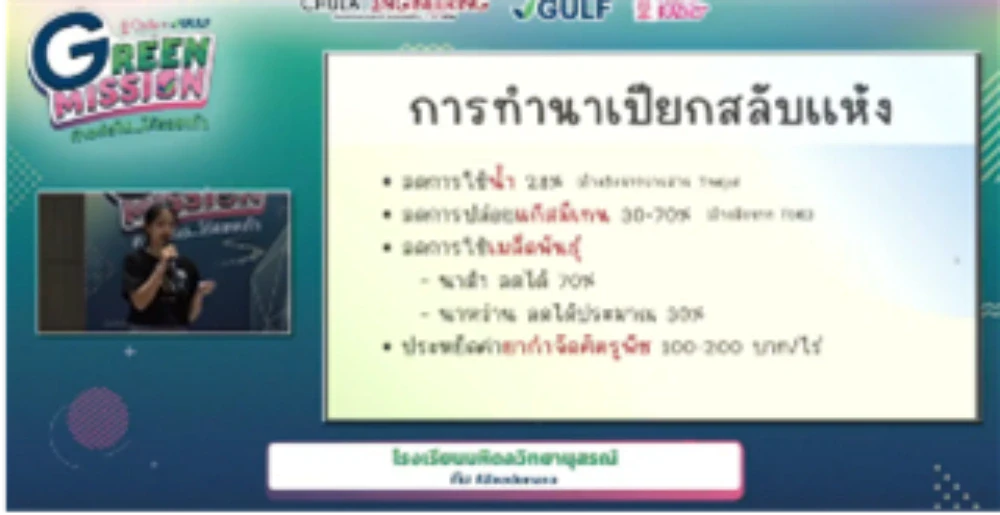
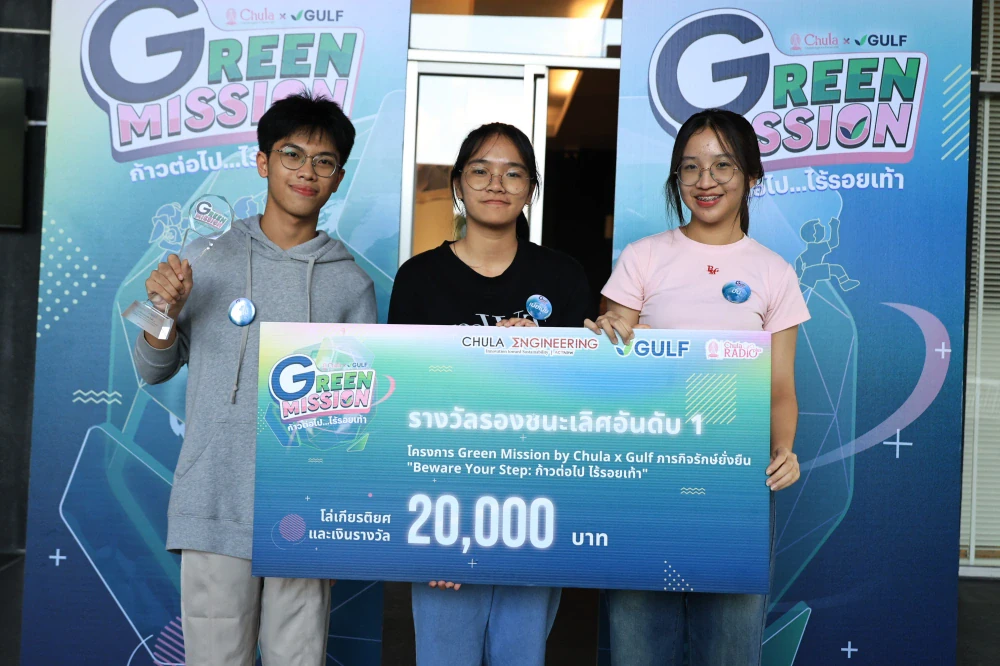
The team’s vision is to transform Ban Tha Maprang into a sustainable community by implementing an environmentally friendly rice farming method. The community, already engaged in eco-tourism initiatives, sought to enhance its sustainability efforts by adopting a more efficient and eco-conscious approach to rice cultivation. The team proposed the implementation of alternate wetting and drying rice farming, a technique that significantly reduces water usage, methane emissions, and chemical input, leading to substantial cost savings for farmers compared to traditional methods. This method not only conserves water resources and maintains soil fertility but also mitigates greenhouse gas emissions.
Furthermore, the team suggested utilizing leftover rice straw from the farming process to create eco-friendly packaging materials. This value-added approach would generate additional income for the community and further promote its tourism potential. By embracing alternate wetting and drying rice farming, Ban Tha Maprang Community can become a model for sustainable agriculture and an even more attractive destination for eco-conscious travelers.
2nd Runner-up: Maha Vajiravudh School, Songkhla Province
Project: Kao Seng Model
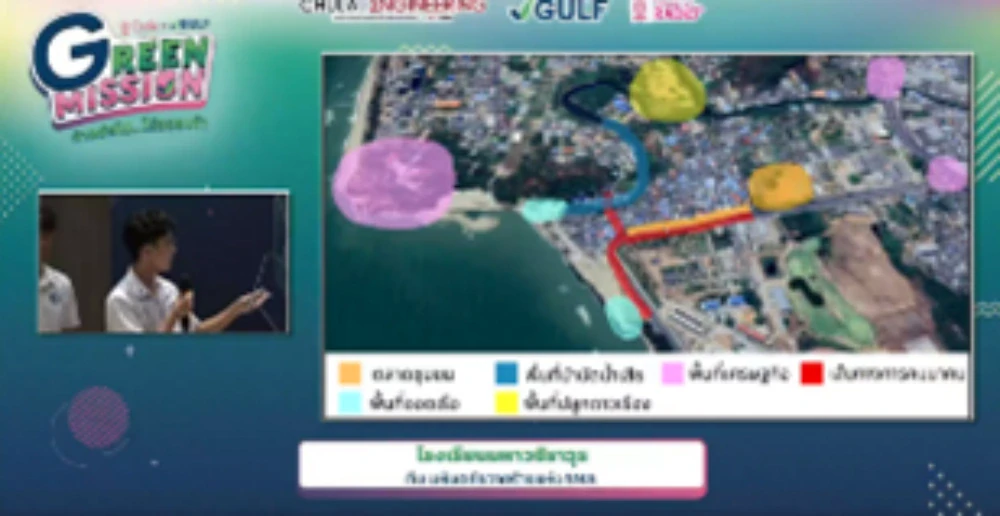
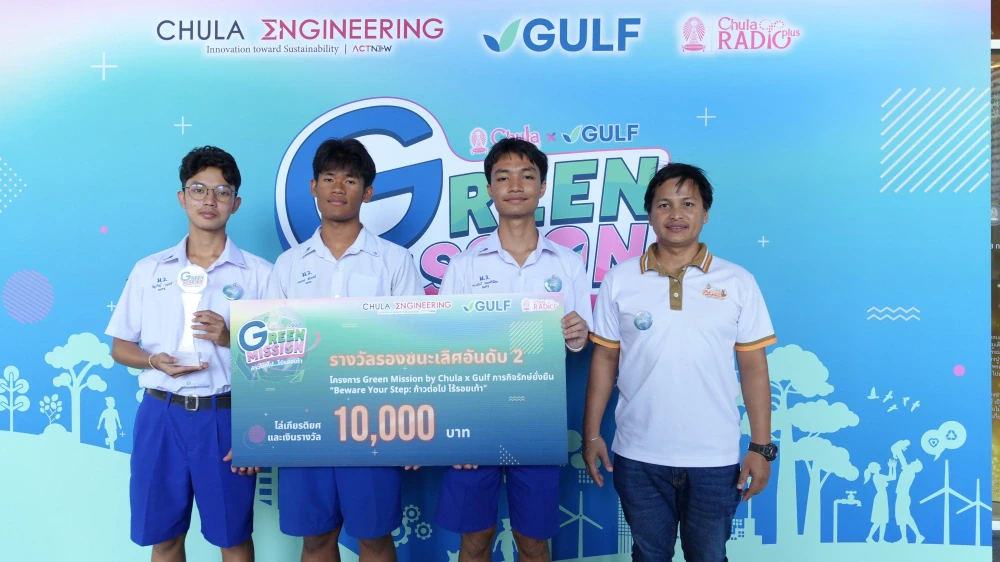
This comprehensive project aims to address environmental challenges and promote sustainable economic growth in the Kao Seng community, a prominent fishing community and tourist destination in Songkhla Province. The Kao Seng community currently faces significant issues related to waste management, wastewater treatment, and unsustainable natural resource utilization. To tackle these challenges, the team proposed the Kao Seng Model, a holistic approach that leverages the community’s resources to maximize benefits. Key components of the model include waste management: implementing a waste separation system and transforming marigold flowers into various products like woven fabrics and bracelets. Marine Conservation: producing environmentally friendly fishing equipment from natural materials and converting fishing boats to solar power. Community Development: planting marigolds to reduce carbon emissions and generate additional income, as well as improving market layouts to alleviate traffic congestion. The Kao Seng Model serves as a blueprint for sustainable community development, demonstrating how local resources can be harnessed to create a more environmentally friendly and economically prosperous future.
